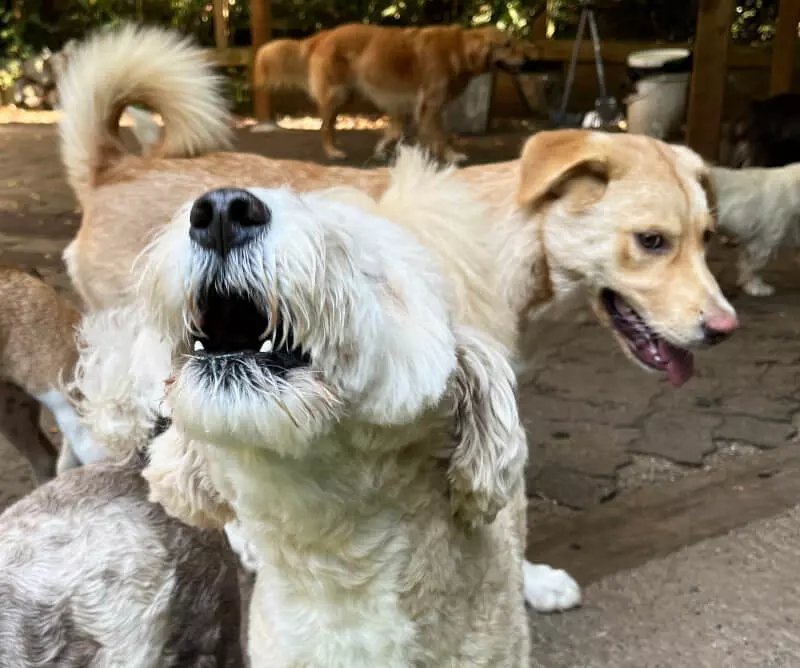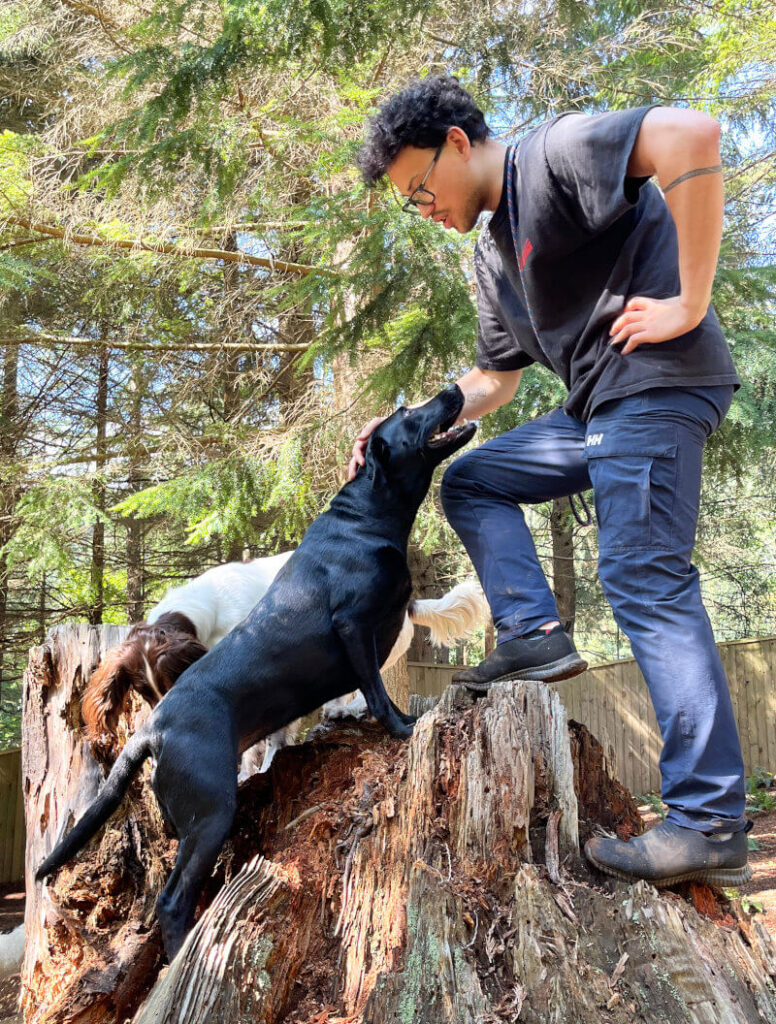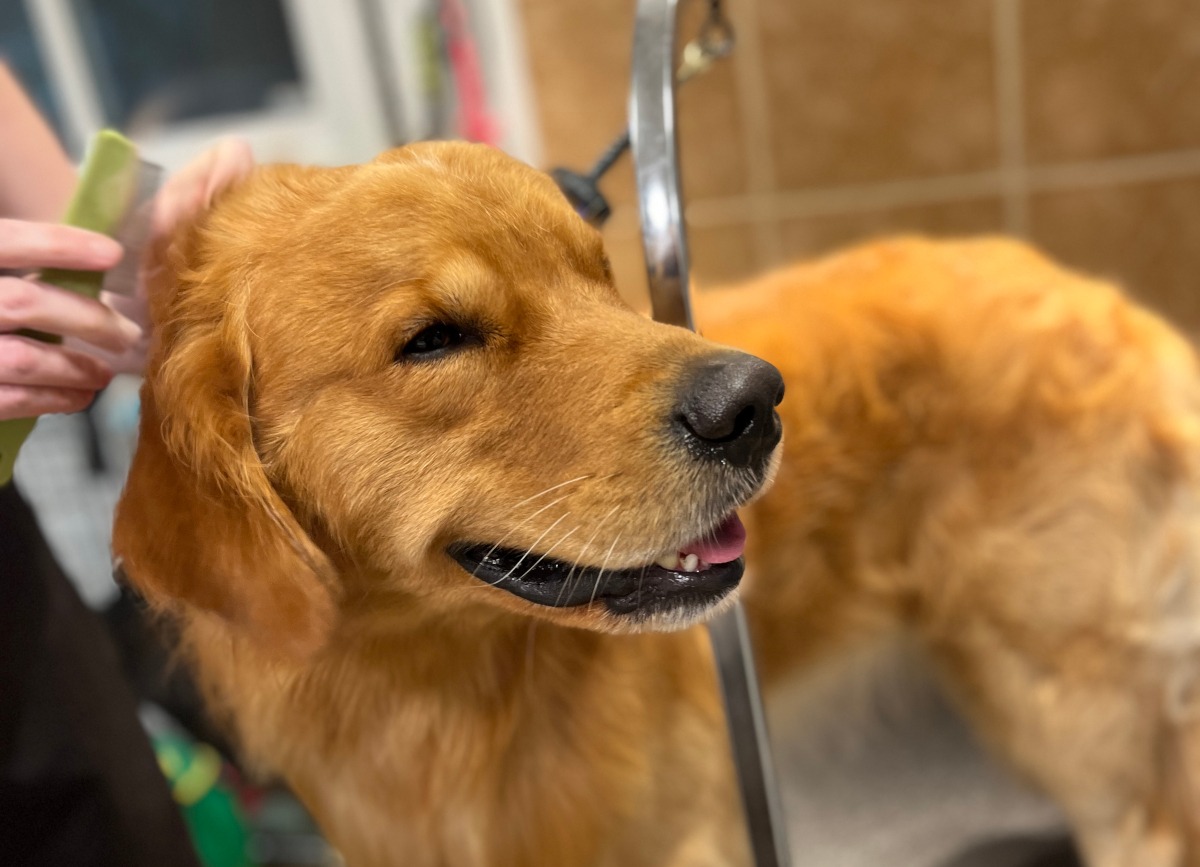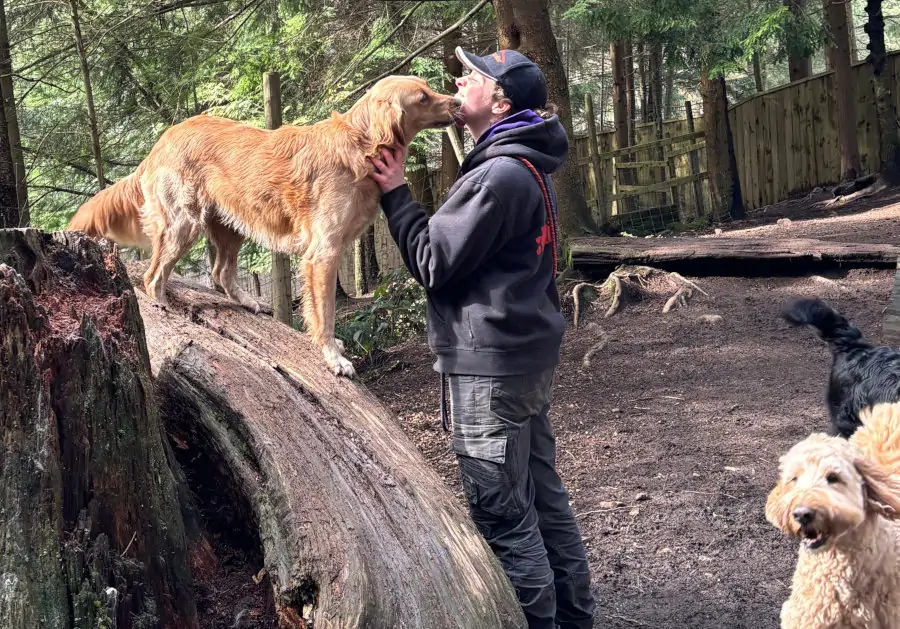Introduction
Have you ever noticed your dog knows just how to get your attention? Maybe they nudge you with their paw when they want to play, or bark when they want space. These behaviours aren’t just cute; they stem from learning!
One key way dogs learn is through operant conditioning, a theory that helps us understand why they do what they do. Let’s dive into operant conditioning and see how it shapes your dog’s behaviour and communication.
Understanding Operant Conditioning
What is Operant Conditioning?
Operant conditioning is a way dogs learn that focuses on how their actions lead to certain results. B.F. Skinner, a psychologist, developed this theory. It says that behaviours followed by positive outcomes will happen more often. While behaviours followed by bad things, will happen less!
How Does it Work?
When your dog does something good and gets a reward, like a treat or praise, they are more likely to repeat that behaviour. This is because they associate that action with something positive. On the flip side, if they do something that leads to a negative experience, like being ignored, they are less likely to do it again.
Common Dog Behaviours and Their Motivations
Pawing for Attention
Why Do Dogs Paw?
One behaviour many dogs show to get your attention is pawing. You might see your dog nudge you with their paw, looking hopeful for some love or playtime.
Reinforcement in Action
When you respond to this behaviour by petting them or giving them attention, your dog learns that pawing gets them what they want. So, next time, they will be more likely to paw at you to get that same positive response. This is how they effectively use their paws to communicate their needs!
Barking for Space

The Role of Barking
Barking is another way dogs express their feelings or needs. For example, a dog might bark when they want some space from another dog or person.
Understanding the Motivation
When a dog barks and what bothers them moves away, they learn that barking works. Over time, barking becomes their main method for asserting their boundaries.
Practical Implications for Dog Owners

Enhancing Communication
Understanding operant conditioning can really help you connect with your dog. By knowing the reasons behind their behaviours, you can change how you respond. You can reinforce the good behaviours you want to see more of.
Dog Training Tips
- Ignoring Attention-Seeking Behaviours: If your dog paws at you for attention, try ignoring it at first. This way, you show them that pawing won’t get them the attention they want. Instead, wait until they’re sitting calmly before giving them praise or affection. This teaches your dog that being calm is the way to get what they want.
- Proactive Management for Barking: If your dog barks to assert their space, being proactive can help a lot. Pay attention to things that trigger their barking, like other dogs or loud noises. When you see these triggers, you can redirect their focus using treats or commands. For example, if your dog barks at strangers, give them a treat when they stay calm instead of barking.
- Enrolling in a Training Class: Think about signing up for dog training classes. Training classes not only help with obedience but also provide a great way for your dog to socialise with others.
- Finding a Private Dog Trainer: If you want more personal help, consider private dog training. A good dog trainer can tailor their approach to fit your dog’s specific needs, helping them learn more effectively.
- Dog Boarding and Training: If you’re going away, think about dog boarding while training near you. This option combines boarding with training, ensuring your dog learns good behaviours while you’re away.
Understanding Dog Behaviours
By applying the principles of operant conditioning, we can help our dogs learn and grow. It’s all about understanding their behaviour and being patient with them as they learn. Good training treats for dogs can also make a big difference—choose treats your dog loves!
Dog Play in Vancouver
If you’re in the Vancouver area, don’t forget about dog play opportunities. Socialising with other dogs can be a fantastic way for your dog to learn. Playgroups provide a safe space for your dog to interact with other canines, which helps with their social skills and overall behaviour.
Understanding operant conditioning and how it motivates your dog’s actions can help you communicate better with your dog. Whether it’s through private training, group classes or Board & Train, the right training can make a big difference. With time, patience, and the right strategies, you can foster a deeper bond with your canine companion, making life happier for both of you!
By using the ideas of learning theory in your training, you can help your dog do well and have fun with you. Happy training!



